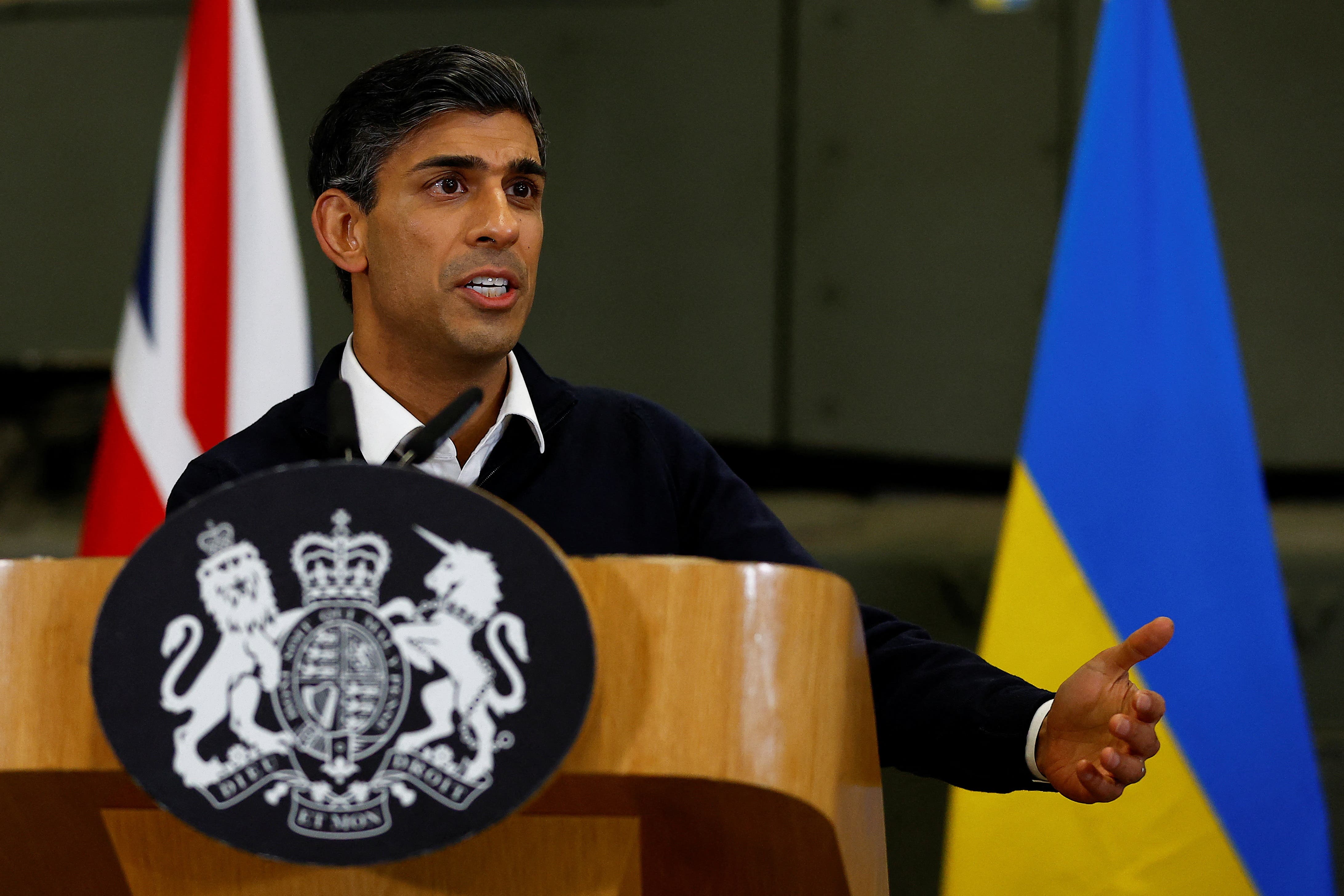Will Rishi Sunak be a good ex-prime minister?
Sunak can learn a lot about what not to do from his predecessors Boris Johnson and Liz Truss, writes Andrew Grice


Boris Johnson and Liz Truss are writing a new chapter in the book of former prime ministers, titled “Don’t blame me, I was only the PM.”
All former party leaders – including those who don’t make it to Downing Street – inevitably try to put the best gloss on their record. But Johnson and Truss are taking this to extraordinary new lengths, rewriting the history of their premierships when the ink is barely dry.
They and their allies portray them as victims. Nadine Dorries attacks on TalkTV “the elite, the faux political intellectuals” who “plotted to depose” Johnson and have failed to achieve the “Rishi bounce” in the opinion polls that they expected. She announces that she will stand down at the next general election – a decision perhaps made easier by Johnson proposing her for a peerage in his still-delayed resignation honours list.
Rather than admitting the painful truth that they were the architects of their own downfall, Johnson and Truss blame everyone else. Why? Johnson wants to come back, as ever trying to defy the rules – this time, those of the former PMs’ club: “No one wants to join, and you never get to leave,” as David Cameron puts it.
Truss wants to be a prophet who persuades the Tories to march to the promised land of low taxes and high growth, even if she can no longer lead them. But this week she further weakened her chances of doing so by refusing to apologise for the chaos caused by her mistakes, blaming her fall instead on “a very powerful economic establishment”. Remarkably, when asked for her message to the mortgage holders now facing higher payments, she replied: “I don’t think it’s fair to blame interest rises on what we did.”
Truss argued that she had stepped forward because not enough people are making the case for economic growth. But she made herself the wrong messenger – even though many Tories instinctively support her message. After all, who opposes growth? Even some natural allies were appalled by the lack of contrition in her 4,000-word Sunday Telegraph essay and Spectator TV interview.
“She has just shot herself in both feet,” one Tory MP told me.
Johnson and Truss would enjoy more influence – and greater public sympathy – if they had departed with more grace and accepted responsibility for what went wrong on their watch. Both pointed the finger of blame at MPs for ousting them. But they squandered the power they had won. Anyone would think they had governed in a hung parliament and had lost the support of a handful of rebel Tories; in fact, each enjoyed a large majority of around 70.
In office, a prime minister has to be on top of every issue – or at least, to pretend to be. So after leaving No 10, some want to give us their view on everything. They should resist temptation, ration their appearances, and carry a “keep out” sign around with them. John Major and Theresa May are good role models. As Gordon Brown quipped: “My advice to my successor is not to take my advice.” Ex-PMs can still be part of the debate, as Brown showed this week. The Tony Blair Institute pumps out good research and ideas; it was ahead of the curve, and the government, during the pandemic.
Rishi Sunak is not the first PM to be given a headache by his predecessors. Edward Heath was dubbed “the incredible sulk” for his constant sniping at Margaret Thatcher, who later wanted to be Major’s back-seat driver. It’s worse for Sunak, because Johnson wants to return to Downing Street and will probably run his flag up the pole if the Tories do badly in the May local elections in England.
I don’t think enough Tory MPs will salute, but it’s still destabilising for Sunak. Johnson supports “the government” without mentioning him; nor did Truss find space for him in her 4,000 words.
Is the behaviour of Johnson and Truss the new normal? Or is it a symptom of the populism, constant blame game, and “one of us” tribalism that have divided the Tory party since the 2016 EU referendum? I suspect it’s the latter.
Both reaped what they sowed. Johnson created enemies by exiling pro-Europeans rather than bringing his party and the country together after Brexit. “He demolished our party’s broad church,” said one former ally. Truss followed suit, excluding anyone with links to Sunak from her government. And now she complains that they didn’t rally behind her when the going got tough.
If he loses next year’s general election, it is hard to imagine Sunak acting in the same way as his two recent predecessors. He is more likely to take full responsibility and say he tried his best, even though he would be within his rights to blame such a defeat in part on the damage to the Tory brand inflicted by Johnson and Truss. They are still adding to it by reminding voters of their own failure.






Join our commenting forum
Join thought-provoking conversations, follow other Independent readers and see their replies
0Comments